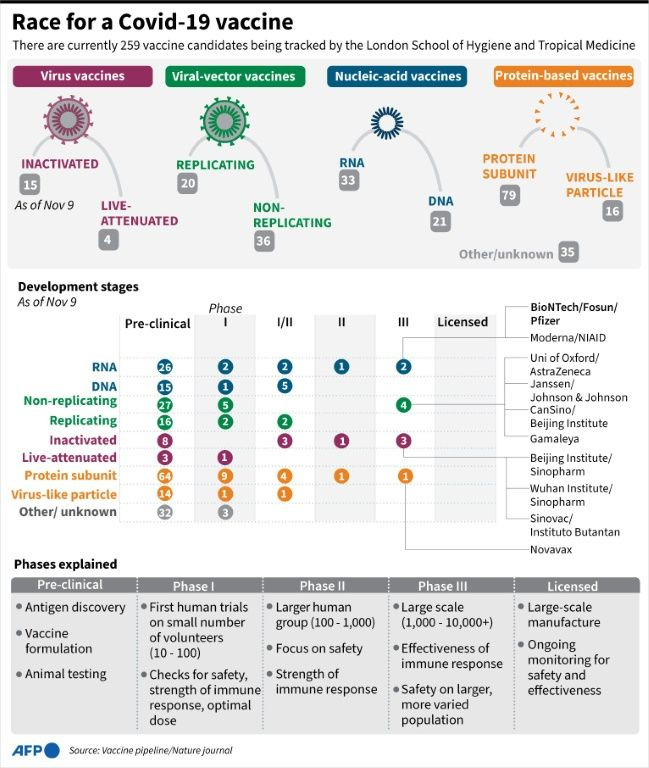COVID Vaccine Safety Concerns Addressed By Pfizer CEO After Landmark Announcement
KEY POINTS
- CEO said ethical considerations would prevent him from taking it first
- Trials so far have no raised any safety concerns
- Even with an approved vaccine, masks, handwashing and social distancing are still advised
After announcing an apparent breakthrough on a COVID-19 vaccine, the head of drugmaker Pfizer said he would feel safe taking it once the drug is approved by the appropriate regulatory authorities.
“Once they approve it,” Pfizer CEO Albert Bourla said of the U.S. and European drug safety agencies, “I know that it is safe for my family.”
Bourla told CNBC’s “Squawk Box” on Monday that he’d like to be among the first in line, but acknowledged there were ethical concerns involved.
“If we have a limited number of doses, I’m not sure if people would recommend people of my age (58) ... or work capacity to be among the first to get a vaccine,” he told CNBC. “So, I want to respect that.”
Bourla was discussing the vaccine after a joint announcement with German drugmaker BioNTech that its COVID-19 vaccine proved to be 90% effective at preventing the ailment during clinical trials.
The success rate, however, comes with caveats. The 90% rate came seven days after a second dose was delivered to participants with no prior evidence of SARS-CoV-2 infection, its formal name. Data showed that COVID-19 protection occurred 28 days after the initial vaccine through a two-dose inoculation schedule.
The vaccine relies in part on a type of genetic material called messenger RNA, or mRNA. The vaccine contains genetic information about the virus. But rather than infecting people, it would trigger the body to make antibodies to build up immunity. So far, no mRNA vaccine has been approved for any viral infection.
More than 43,000 participants were involved in late July testing by Pfizer and BioNTech of the COVID-19 vaccine, BNT162b2, with no major safety concerns. Pfizer stated Monday it could be reviewed by the U.S. Food and Drug Administration for emergency-use authorization by the end of November, but stressed it was early in the game.
“It’s important to note that we cannot apply for FDA Emergency Use Authorization based on these efficacy results alone,” its statement read. “More data on safety is also needed, and we are continuing to accumulate that safety data as part of our ongoing clinical study.”
U.S. President-elect Joe Biden said Monday that, even with a vaccine, people should still wear a mask, wash their hands frequently and practice social distancing.
The FDA’s equivalent in Europe is the European Medicines Agency. The Reuters news service carried a statement from the EMA saying it also was assessing the Pfizer/BioNTech vaccine.

© Copyright IBTimes 2024. All rights reserved.





















